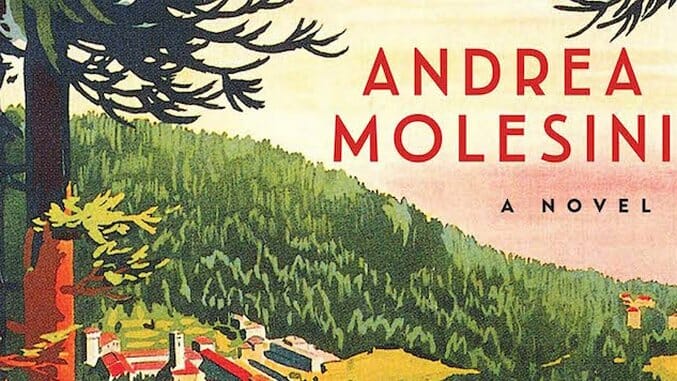Not All Bastards Are from Vienna by Andrea Molesini

In his stunning debut novel, essayist Andrea Molesini examines the violence and tenderness experienced by civilians in German-occupied Italy during the First World War. Based on the journals of Molesini’s great aunt, Not All Bastards Are from Vienna tells the coming-of-age story of Paolo, a 17-year-old Italian boy who discovers love and courage during wartime. Avoiding simple answers and transparent morality, the novel breathes life into a cast of vivid characters, all of whom are serving their country the best way they know how.
Paolo lives with his colorful extended family at the Villa, a lesser aristocratic estate in the village of Refrontolo. His grandparents are at constant odds, in part due to his grandmother’s companion—a loathed figure with huge feet called the “Third Paramour.” His aunt is an intimidating woman who captures the imagination of powerful men but prefers the company of horses above people. Paolo is especially fascinated by the mysterious steward, Renato, and a young village woman named Giulia, who lets Paolo come just close enough to give her an occasional kiss—but never further.
 When the Villa is requisitioned by the Germans (and later the Austrians), the family begins collaborating with local British and Italian spy networks. Paolo slowly learns the extent of his family’s involvement as he is trusted with tasks and missions, but as the fighting drags on, their operations shift from a fun adventures to life-and-death situations.
When the Villa is requisitioned by the Germans (and later the Austrians), the family begins collaborating with local British and Italian spy networks. Paolo slowly learns the extent of his family’s involvement as he is trusted with tasks and missions, but as the fighting drags on, their operations shift from a fun adventures to life-and-death situations.
-

-

-

-

-

-

-

-

-

-

-

-

-

-

-

-

-

-

-

-

-

-

-

-

-

-

-

-

-

-

-

-

-

-

-

-

-

-

-

-








































